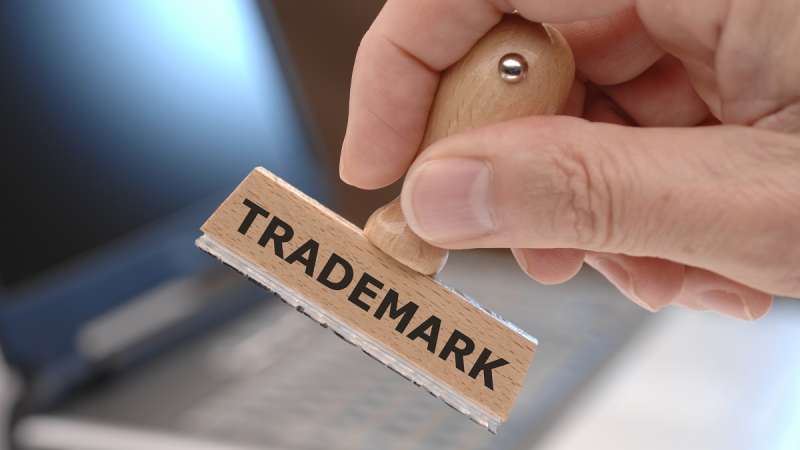Our Business Debt Recovery Expertise
Every client and case is different, and we are here to support you every step of the way.
All of the solicitors in our Debt Recovery Team are specialists and have a detailed understanding of debt recovery law and procedures. We will provide practical advice and work with you in order to deal with your debt recovery matters in the best way possible. This means you can concentrate on what’s important, running your business.
We provide a personal service. Our experienced solicitors get to know you and your business inside out, so we can best advise you. We know that dealing with litigation can be stressful and we aim to take that stress away from you. We strive to become your trusted advisors, providing value and most of all a genuine, personal service.
We provide the highest level of expertise. Combining commerciality, practicality and legal expertise enables us to deal with debt recovery matters in the most effective way.
We help clients nationwide with complex cases, acting for businesses who need help recovering outstanding business debts. You can rest assured that our expert team knows its stuff!
We recognise that business debt recovery disputes can arise in a variety of circumstances and we tailor our approach to ensure our clients achieve the best possible outcome at the most appropriate cost, whilst providing you with transparent fee estimates.
How Our Business Debt Recovery Team Can Help
Most, if not all, businesses, regardless of the sector in which they operate, are likely to need to pursue an unpaid debt at some time. For most businesses, it is critical that the collection of outstanding debts is managed efficiently to assist cashflow. To do this, you may need the assistance of a specialist debt recovery solicitor to ensure debts are paid promptly.
Whether you are an SME or a large corporate entity with an international presence, Myerson’s highly adept and vastly experienced debt recovery solicitors are experts in advising on all types of debts. We will work with you to compile debt recovery strategies to ensure your debts get paid.
We recognise that debt recovery disputes can arise in a variety of circumstances and we tailor our approach to ensure that our clients achieve the best possible outcome at the most appropriate cost.
Our debt recovery team will evaluate the crux of the issue and provide timely advice regarding the appropriate steps to take. You can view our pricing here.
Our Business Debt Recovery Experience
Here are a few examples of debt recovery matters we have recently been involved in:
- Acting for a landlord with a portfolio of well-established town centre retail units in respect of various debt recovery matters relating to rent, service charge and insurance charge arrears.
- Acting for a kitchen company in relation to recovery of payment for the installation of two new kitchens.
- Acting for a film company that was owed money for the production of a film to advertise the defendant’s business.
- Acting for a company who provides telephone system maintenance services who was owed money following the wrongful termination of its contract.
- Acting for a German company in relation to unpaid invoices relating to trailers and trailer parts ordered by the debtor which was a company based in England.
- Acting for a building company who specialises in restoration, structural and building repairs in various debt recovery matters relating to unpaid invoices for construction work carried out.
Why Work With Our Dispute Resolution Team
- For the past seven years, the Legal 500 has rated us as a Top Tier legal firm.
- You will get access to more than 9 dispute resolution professionals from the Myerson Dispute Resolution Group, who will assist you with , shareholder, and partnership disputes, professional negligence, commercial agency and more.
- You will obtain city-quality dispute resolution legal help at regional pricing.
- We offer a partner-led service to make sure you get the greatest legal counsel and support with a focus on business.
- Our large and experienced team can work quickly to fulfil your deadlines.
- We recognise that each transaction is unique to your specific circumstances and that you require the assistance of a dispute resolution solicitor who has dealt with a wide range of clients and types of work.
- We are a full-service law company with a single location, which ensures our employees interact effectively and efficiently.
- We employ the most recent technology to make sure that we are operating as effectively as possible and that a client's location is not a barrier to us providing outstanding customer service.
- All of our clients receive free newsletters and webinars that keep them informed about dispute resolution legal developments. View our most recent webinar on dispute resolution updates here.
- Check out the Myerson Promise for more information on the benefits of working with us.
Enforcing Business Debt Payment | Dispute Resolution
Testimonials
Frequently Asked Questions
What is a business debt?
Business debts are debts that one business owes to another business. It is quite normal for businesses to have debts but debts that are outstanding for a significant period of time can become a problem if they affect the business’ cash flow.
Bad debts can arise when the debtor is unable to pay the debt and the creditor is unable or unwilling to pursue the debt which can be for a number of reasons.
How can I recover debts owing to my business?
If the debtor has ignored your emails and telephone calls to pay outstanding debt, the first step is for us to send a letter of demand to the debtor. This sets out the amount of money outstanding and how the debt has arisen. In most circumstances, we can add interest and costs onto the original outstanding debt.
Our letter of demand will give the debtor a short timescale to respond. In cases where the debt is owed by a business such as a limited company, the debtor is normally given 7 days to pay the debt or respond as to why they think the debt is not owing. In cases where the debt is owed by a sole trader, the debtor has to be given 30 days to pay the debt or respond as to why they think the debt is not owing.
If our letter of demand is ignored, or the debtor does not provide any proper arguments as to why the debt is not owed, we will discuss the next steps with you. Usually, this involves issuing Court proceedings to recover the debt owing.
How much will this cost?
We offer competitive fixed fees for undisputed debt recovery matters. The following charges will apply where your claim is in relation to unpaid invoice(s) which are not disputed and enforcement action is not needed. If the other party disputes your claim at any point, we will discuss the further work required and provide you with revised advice about costs if necessary, which could be on a fixed fee or an hourly rate if more extensive work is required.
Please note that debts of less than £500 tend not to be proportionate to pursue and we do not deal with debt recovery matters where the debt owed is less than £500.
We have split our work and fixed fees into 3 stages, as set out below.
Stage 1
- Taking your instructions and reviewing documentation.
- Undertaking any appropriate searches.
- Sending a letter of demand.
| Debt Amount | Our Fee (excluding VAT and disbursements) |
| £500.01 - £1,000.00 | £250 +VAT |
| £1,000.01 - £10,000.00 | £450 +VAT |
| £10,000.01 - £50,000.00 | £750 +VAT |
| £50,000.01 - £100,000.00 | £1,200 +VAT |
| Above £100,000.00 | £1,400 +VAT |
VAT where applicable is charged at 20%
Stage 2
- If the debt is not paid following the sending of a letter of demand, drafting and issuing Court proceedings.
| Debt Amount | Our Fee (excluding VAT and disbursements) | Court Issue Fee | Total Charges (excluding VAT) |
| £500.01 - £1,000.00 | £350 +VAT | £70 | £420 +VAT |
| £1,000.01 - £10,000.00 | £700 +VAT | Between £80 and £455 | Between £780 and £1,155 +VAT |
| £10,000.01 - £50,000.00 | £1,000 +VAT | 5% of the value of the claim | £1,000 +VAT plus the Court issue fee |
| £50,000.01 - £100,000.00 | £1,300 +VAT | 5% of the value of the claim | £1,300 +VAT plus the Court issue fee |
| Above £100,000.00 | £1,800 +VAT | 5% of the value of the claim | £1,800 +VAT plus the Court issue fee |
VAT where applicable is charged at 20%
Stage 3
- Where no Acknowledgment of Service or Defence is received, applying to the Court to enter Judgment in Default.
- When Judgment in Default is received, writing to the debtor to request payment.
| Debt Amount | Our Fee (excluding VAT) | Fixed costs recoverable from the debtor for issuing Court proceedings and entering Judgment |
| £500.01 - £1,000.00 | £250 +VAT | Up to a maximum of £195 |
| £1,000.01 - £10,000 | £275 +VAT | Between £230 and £625 depending on the size of the debt |
| £10,000.01 - £50,000 | £300 +VAT | Up to a maximum of £170 plus the Court issue fee |
| £50,000.01 - £100,000 | £325 +VAT | Up to a maximum of £170 plus the Court issue fee |
| Above £100,000 | £350 +VAT | Up to a maximum of £170 plus the Court issue fee |
VAT where applicable is charged at 20%
Please note that:
- The VAT element of our fees cannot be reclaimed from your debtor.
- Interest and compensation may take the debt into a higher banding, with a higher cost.
- The costs quoted above are not for matters where enforcement action, such as instructing bailiffs, is needed to collect your debt.
- No VAT is payable in respect of court fees.
- The Court fees payable are determined by the Court and may change from time to time.
- Our fees may not be recoverable from the debtor in full. For debt recovery claims where the claim is not defended, only limited fixed costs are recoverable as set out above.
- Unless contractual costs apply, our fees are unlikely to be recoverable if the claim is resolved prior to the issuing of any Court proceedings.
- Should a debt recovery claim become defended, additional fees will be payable based on our hourly rate charges set out below.
The fixed fees in the tables above are based on the hourly rates of our solicitors and legal assistants. Where a debt claim becomes defended and/or enforcement action is required to recover the debt, the following hourly rates will apply. We will provide you with an accurate estimate of our charges for any additional work required before carrying out that work for you.
| Partners and Legal Directors | Senior Associates, Associates and Solicitors | Trainee Solicitors | Legal Assistants |
| £365 - £375 +VAT | £265 - £330 +VAT | £215 +VAT | £170 - £195 +VAT |
All prices are subject to VAT at 20%
How long will it take to recover the debt?
Matters usually take 12-16 weeks from receipt of instructions from you to receipt of payment from the debtor, depending on whether or not it is necessary to issue a claim. This is on the basis that the debtor pays promptly on receipt of a Judgment in Default. If a matter becomes defended and/or enforcement action is needed, the matter will take longer to resolve.
Notwithstanding this, it is our experience that most debtors pay the debt owing upon either a letter of demand being sent to them or when Court proceedings are served on them. This means your debt matter may be resolved very quickly; sometimes within a matter of days.
What evidence do I need to recover the debt?
The easiest way to recover a debt is if you have a written and signed contract with the debtor which clearly shows what both parties obligations were, for example, that you would supply goods or services to the debtor and what the debtor would pay for those goods or services.
However, you may have other documentary evidence such as purchase orders, invoices or written correspondence that evidence how the debt has arisen.
It is important to keep copies of all correspondence and documents as well as your attempts to collect the debt or negotiate a settlement.
We would be happy to discuss what evidence you have before taking any action on your behalf to try and collect the outstanding debt, especially if there is a dispute as to whether the debt is owing.
What happens if a debt recovery case is defended?
If Court proceedings are issued to recover the business debt owed, the debtor can defend the Court proceedings. The debtor has 14 days from when the Court proceedings are served on it to notify the Court whether the Court proceedings will be defended.
If the debtor disputes your claim at any point, we will discuss what further work is required and provide you with revised advice about costs if necessary, which could be on a fixed fee (e.g. if a one-off letter is required), or an hourly rate if more extensive work is needed. We will also discuss with you what evidence will be required in order to give you the best chance of resolving the case to your satisfaction.
Can you help me with any negotiations with my debtors?
In order to recover some or all of the business debt that is owed to you, it may be necessary to negotiate with the debtor as to the amount that will be paid and/or over what period. We are more than happy to help with these negotiations and indeed it can be better for a solicitor to handle such negotiations so as to make sure the negotiations are properly dealt with and recorded. We can also assist with drafting settlement documentation if any negotiations are successful.
What are the differences between Myerson’s business debt recovery services and standard debt collection agencies?
Debt collection agencies pursue unpaid invoices and outstanding debts on behalf of creditors. We are not a debt collection agency as we are solicitors who specialise and have a detailed understanding of debt recovery law and procedures.
Debt collection agencies are normally very aggressive in getting debtors to pay their debts as quickly as possible. This is because debt collection agencies are not able to issue Court proceedings on behalf of creditors. The aggressive nature of some debt collection agencies can damage commercial relationships which some businesses are keen to avoid if they want to maintain a relationship with the debtor in the future.
We are experts in debt recovery and by instructing us, you will receive the following benefits:
- Using Myerson’s business debt recovery services as opposed to a debt collection agency can help minimise any damage to commercial relationships especially if you want to maintain a relationship in the future with the debtor.
- We will provide practical advice and work with you in order to deal with your debt recovery matters in the best way possible. This means you can concentrate on what is important, running your business.
- We are specialists in dealing with debt recovery matters and have a detailed understanding of debt recovery law and procedures.
- We can progress your claim by issuing Court proceedings should that be required. Debt collection agencies cannot issue Court proceedings on your behalf.
- If your claim is defended, our team of solicitors can advise on the next steps and ensure the best course of action is taken to try and recover the debt quickly and at a proportionate cost.
- We provide a personal service. Our experienced solicitors get to know you and your business inside out, so we can best advise you. We know that dealing with litigation can be stressful and we aim to take that stress away from you. We strive to become your trusted advisors, providing value and most of all a genuine, personal service.
- We provide the highest level of expertise. Combining commerciality, practicality and legal expertise enables us to deal with debt recovery matters in the most effective way.
- We help clients nationwide with complex cases, acting for businesses who need help recovering outstanding debts.
- We are the Manchester and Cheshire law firm member for the MSI Global Alliance, a top 20 ranked, leading, an international association of independent professional firms. This means that if any debt recovery matters we deal with involve an international element, we can call upon the expertise and knowledge of our fellow MSI members to ensure that your global interests are protected.
- We have straightforward and transparent pricing structures in place for both undefended and defended debt recovery matters.
We can advise on the best way to enforce any County Court Judgments you obtain against your debtors.
Will I be kept informed about the progress of my debt recovery case?
We pride ourselves on the service and expertise we provide to our clients. In accordance with our Myerson Promise, we promise that we will:
- Be completely transparent about our fees from the outset.
- Progress every matter in an efficient and timely manner.
- Answer the telephone within three rings and not transfer you to voicemail.
- Respond to any telephone messages within two hours during the working day.
- Provide you with regular updates as to the progress of the matter, even if the news is that there is no progress.
- Ensure that when your lawyer is on holiday or away from the office for another reason that we will have another lawyer who is fully up to speed on your matter so that it will be progressed.
How long do I have to collect a debt?
In England and Wales, you have 6 years from the date the payment fell due to pursue the unpaid debt. For example, if the payment fell due on 1 January 2021, you have until 31 December 2027 to issue Court proceedings in relation to the debt.
After this 6 year timeframe has elapsed, any claim becomes statute-barred meaning that the debt cannot be pursued. The burden is on creditors to show that the 6 year time limit has not expired.
If you are not sure if you can pursue your outstanding business debt because of the time period that has elapsed, please do contact us as it is always worth checking with a solicitor whether a claim can still be brought.
Can interest and costs be charged on overdue debts?
If you have a contract with the debtor, this may provide a contractual basis on which interest and costs are payable on top of the principal debt.
If there is no written contract or the contract does not provide for interest and costs to be paid, the Late Payment of Commercial Debts (Interest) Act 1998 applies to most business to business contracts for the supply of goods and services. This legislation allows for at least 8% interest, fixed sums and reasonable costs to be charged in respect of recovery of the debt.
If the Late Payment of Commercial Debts (Interest) Act 1998 does not apply, there is other legislation that may allow for interest and costs to be charged on overdue debts.
What impact does a County Court Judgment have?
Once Court proceedings have been issued by the Court and served on the debtor, the debtor only has 14 days to respond to the Court proceedings. If the debtor fails to respond to the Court proceedings, we can apply to the Court for Judgment in Default.
If a Judgment in Default is obtained from the Court, the debtor will be ordered to pay a sum of money to you. This will be the amount of the claim plus interest and costs. The debtor will either have to pay immediately or will be given a deadline to pay.
The Judgment will be registered on the Register of Judgments and, unless the Judgment is paid in full within 30 days of the deadline, it will have a detrimental impact on the debtor’s credit rating and will affect their ability to get credit from organisations like banks and building societies.
If the debt is paid after the 30-day deadline, the Judgment will not be removed from the register, but it will be marked as “satisfied” i.e. paid.
Please note that a Judgment does not in itself guarantee payment of the debt. We may have to take further enforcement action should the debtor not be forthcoming with payment.
Can I use insolvency proceedings to collect a debt?
If you are trying to collect a debt and do not wish to issue Court proceedings you may be able to commence insolvency proceedings.
The first step in insolvency proceedings is normally to serve a statutory demand, which is a formal demand for the payment of a debt. This demand gives the debtor 21 days to make payment of the debt in full. The debtor is subsequently warned that failure to make payment will mean that a bankruptcy or winding-up petition will be presented.
If the debtor is a sole trader the debt has to be over £5,000 to take insolvency action. A statutory demand would be sent followed by the presentation of a bankruptcy petition.
If the debtor is a company, for example, a limited company, the debt has to be over £750 to take insolvency action. A statutory demand would be sent followed by the presentation of a winding-up petition.
There are advantages and disadvantages to using insolvency proceedings to collect a debt, as follows:
Advantages
- The threat of bankruptcy or winding-up proceedings can be a powerful incentive for a debtor to pay given the serious nature of insolvency proceedings.
- The preparation and service of a statutory demand can be quicker and cheaper, resulting in payment of the debt or at the very least allowing the debtor to present reasons as to why the debt is not owed.
Disadvantages
- Commencing insolvency proceedings is often seen as very aggressive and can have a negative impact on any ongoing business relationships.
- Serving a statutory demand may not result in payment and the next steps would be issuing Court proceedings or presenting a bankruptcy petition or winding-up petition which can be very costly.
- If a debtor can raise an arguable defence as to why the debt is not owing then in certain circumstances statutory demands can be set aside or bankruptcy or winding-up proceedings dismissed by the Court. If this happened, you would have to proceed by issuing Court proceedings.
- Some Judges do not like creditors using insolvency proceedings as a way to collect unpaid business debts and may provide the debtor with ample opportunities to either dispute or pay the debt. This can slow down the process by which the outstanding business debt is recovered and increase costs which you are unlikely to recover in full.
If I succeed in Court proceedings, does that guarantee payment?
Unfortunately succeeding in Court proceedings does not guarantee payment.
If you succeed in the claim, the Court will either award Judgment in your favour or the debtor will agree to pay a certain amount. If the debtor still refuses to pay the debt or does not comply with any payment plan, you will need to take steps to enforce the Judgment or the amount the debtor agreed to pay.
Unless the debtor has money, assets or income, the debt may not be recoverable. This is why it is important to investigate the debtor’s ability to pay. If you are pursuing a claim against a company, it may be possible to obtain financial information about the company from Companies House. We also work with enquiry agents who can provide financial information about individuals such as company directors.
How can I enforce any Judgment obtained against the debtor?
There are many enforcement methods available such as:
- Instructing bailiffs to seize and sell goods owned by the debtor in order to pay the debt.
- Obtaining a third party debt order whereby you can seize sums owed to the debtor that are in the hands of a third party. For example, monies held in a bank account can be paid to you as opposed to the debtor.
- Obtaining a charging order over property owned by the debtor with a view to the property then being sold in order for the debt to be repaid. Charging orders can also be obtained over other assets such as shares but this is less common.
- Obtaining an attachment of earnings order whereby a proportion of the debtor’s earnings is deducted by their employer and paid to you until the Judgment debt is paid.
- Applying for the debtor to be made bankrupt or wound-up. The debtor’s assets are then collected in by a trustee in bankruptcy or liquidator and distributed amongst all creditors in accordance with insolvency law. A note of caution: bankruptcy and winding-up proceedings are expensive and time-consuming and may not ultimately lead to any recovery depending on how many assets and debts the debtor has.
We can advise you on the best enforcement method(s) available which will depend on the size of the debt and the debtor’s circumstances.
Does it make a difference whether the debt is owed by a public sector organisation, a large company, a small business or a sole trader?
Every type of debt recovery matter is different because all debtors are different and therefore cannot be viewed in the same way.
Larger organisations are likely to have significantly stronger financial positions. Whilst this means that larger organisations are more likely to have the means to pay it also means that they could be in a stronger negotiating position and can afford protracted court disputes.
Public sector organisations may be concerned about the possibility of adverse publicity if Court proceedings were issued against them for debts owed. This can mean that they are more likely to settle their debts quickly and without protracted legal proceedings.
Sole traders are personally liable for any debts incurred and so it may be worth pursuing the individual for the business debt owed if they have significant assets e.g. property in their name. Conversely, directors of a limited company can take advantage of the protection offered to them by limited liability in order to avoid paying business debts.
Regardless of the size and legal status of the debtor, we will provide practical advice and work with you in order to deal with your debt recovery matters in the best way possible. The same basic principles can be followed:
- Does the debtor have the ability to pay?
- Do you have a strong case that the debt is owed?
- Do you have the necessary evidence to prove that the debt is owed?
- Would it be better to negotiate a settlement with the debtor rather than issuing Court proceedings that could become protracted and costly?
Is it worth pursuing the debt?
It is always important to consider at the outset whether you have a reasonable chance of recovering the business debt owed to you. This is particularly important so as to ensure that you do not incur legal fees in trying to recover an irrecoverable debt.
Any debts worth less than £10,000 are allocated to the Court’s Small Claims Track if Court proceedings are issued and then defended. Unfortunately on the Small Claims Track, only limited costs are recoverable which can mean it is disproportionate for solicitors to deal with defended Small Claims Track proceedings because the vast majority of the fees you incur with a solicitor are unlikely to be recoverable.
You should be cautious before deciding to write off small debts particularly if this is likely to set a precedent and encourage debtors who only owe small amounts not to pay.
It is our experience that most debts are paid upon receipt of either a letter of demand or Court proceedings and so we would still encourage you to contact us to discuss your debt recovery matter and how we may be able to help you.
If Court proceedings are issued and defended and it is likely to become disproportionate in terms of costs for us to act, we will let you know. You can always continue with the Court proceedings yourself without the assistance of solicitors. The Courts are more than used to “litigants in person” i.e. individuals and businesses dealing with Small Claims Track proceedings without the assistance of solicitors.
For larger debts, it is important to ascertain and understand why the debtor has not paid. For example, the debtor may say that the goods you supplied were not of satisfactory quality. Issues like this should be explored before steps are taken to recover the debt.
If the debtor is in financial difficulties then it may be more sensible to agree on a reduced payment sum with the debtor or try and agree with them a payment plan for the debt to be paid over time. Please contact us if you need help with this.
Can you still act if the debtor is based in Scotland, Northern Ireland or overseas?
If you need to pursue a debtor who is based outside of England and Wales, this is considered to be outside the jurisdiction and different rules are likely to apply. We may still be able to act for you so please contact us for more information.
Meet Our Specialists
Home-grown or recruited from national, regional or City firms. Our specialists are experts in their fields and respected by their peers.
Contact Our Experts
You can contact our lawyers below if you have any more questions or want more information:














